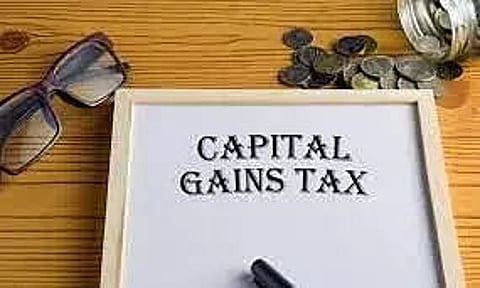
- Home
- Live Blog
- Breaking News
- Top Headlines
- Cities
- NE News
- Sentinel Media
- Sports
- Education
- Jobs

If you have sale any property such as land or house then you must have come around or heard about Capital Gains Tax. The Capital Gain Tax is lesser know as it is not widely famous as other tax terms are. In this article, we will know what it is? What are its types, when and in what situations tax is levied?
The profit which comes from selling of any capital assets such as house, property, jewellery, car, shares, bonds etc are known as Capital Gain Tax. The government considers this capital gain as a part of your income and also levies tax on it. In simple terms, we can say that the tax that is levied on the profit made earned through selling of any capital i.e. property is called Capital Gain Tax.
To be noted
There is a distinct difference between capital and general goods. The goods are sold with little profit at the price they come. Capital is a type of durable asset. It has a tendency to increase its value with the passage of time. Often there is a big difference between their Purchasing Price and Selling Price. In some cases it may even decrease, but it is less frequent.
Capital Gains Tax and Its types
The said tax that is charged on profit received from selling capital is also taxed in different ways. Tax is calculated differently on the capital which we sell by keeping it with us for a long time. Similarly, the capital which we sell by keeping it with us for a short time, tax is calculated differently on it. Thus Capital Gains are divided into two categories such as Short Term Capital Gain and Long Term Capital Gain.
The duration of deciding long term and short term is not the same for everyone. The long term for any capital is considered to be 3 years, while 2 years for some and even 1 year for some. Let's us dive into details how these terms are decided and how they are taxed.
Long Term Capital Gain
If you sell a property by keeping it with you for at least 3 years, then the profit from it is counted in Long Term Capital Gain. This is called Long Term Capital Gain Tax. Immovable properties like land, building, house etc., the duration of long term capital gain has been increased by the government to 2 years from the financial year 2017-18. Whereas movable Properties like Jewellery, Bonds, Debt Oriented Mutual Funds etc., it is only 3 years.
When it comes to share, the government has kept a period of one year in long term. This means that if you sell the share after 12 months of purchase, then the profit from it will fall in Long Term Capital Gain.
Short Term Capital Gain
If you sell a property keeping it with you for less than 3 years, then the profit from it is counted in the short term capital gain. From the financial year 2017-18, the transactions of immovable properties within 2 years have been made in the short term limit. If you buy and sell any immovable property before the mentioned years, then the profit will be assumed to fall in Short Term Capital Gain.
Differences between business income and capital gain
The difference between Business Income and Capital Gain lies in the purpose of investing money. If one engaged in business of buying and selling of property, he/she may buy and sell them several times a year. Such property will not come under the category of capital. The income from that will also be counted in the business income. But, if you have purchased the property for the purpose of investment or your use, then this property will be counted as your capital. The income from these will be counted as Capital Gain.
Generally, 20 percent tax is payable on long-term capital gains. In some special cases it can even be 10 per cent (as per amendment in Finance Act, 2016). The assets on which 10 percent long-term capital gains tax is applicable are—
Such security which is listed in any recognized stock exchange of India.
Unit of UTI or mutual fund, (listed or not). (Applicable only if sold before 10-7-2014)
Zero coupon bonds
In cases where we use Indexation to calculate Capital Gain, 20 percent tax has to be paid. But in cases where indexation is not used to calculate capital gains, only 10 percent tax has to be paid.
Also read: What is Bitcoin Mining?
Also watch: